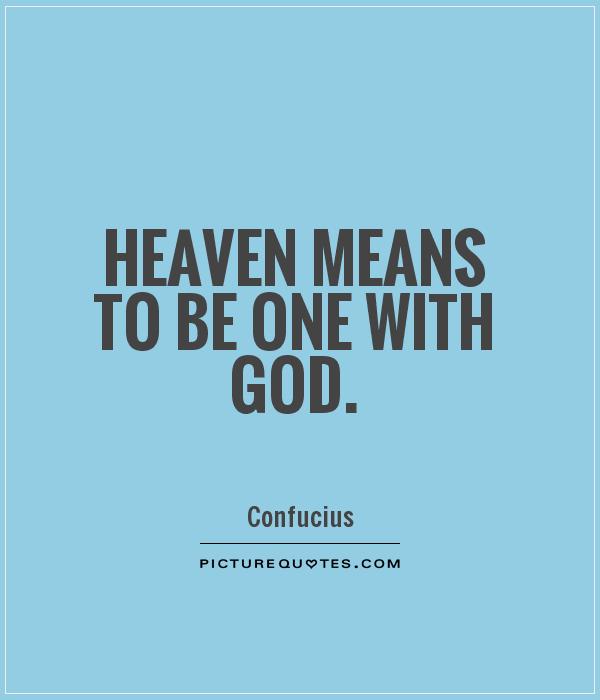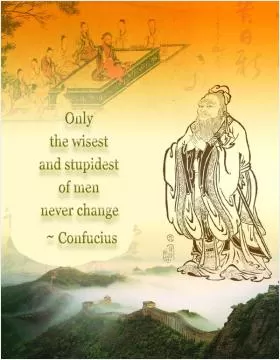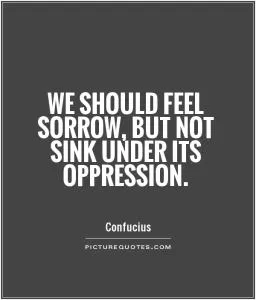Heaven means to be one with God

Heaven means to be one with God
Confucius, the ancient Chinese philosopher, is known for his teachings on ethics, morality, and the importance of cultivating virtues such as benevolence, righteousness, and propriety. While Confucius did not explicitly discuss the concept of heaven in the same way that it is understood in Western religions, his teachings do touch upon the idea of being one with a higher power or ultimate reality.In Confucian thought, heaven (Tian) is often understood as a transcendent force that governs the universe and provides moral order to the world. Confucius believed that by aligning oneself with the will of heaven and following the principles of virtue, one could achieve harmony and balance in their life. This idea of being in harmony with heaven can be seen as a way of being one with God, or the divine.
For Confucius, the ultimate goal of life was to cultivate one's moral character and become a junzi, or noble person, who embodies the virtues of benevolence, righteousness, and propriety. By living a life of virtue and aligning oneself with the will of heaven, one could achieve a sense of inner peace and fulfillment. In this sense, being one with God can be understood as living in accordance with the moral principles that govern the universe.
Confucius also emphasized the importance of self-cultivation and personal growth in order to achieve harmony with heaven. He believed that by constantly striving to improve oneself and cultivate virtues, one could come closer to being in harmony with the divine. This idea of self-improvement and moral development is central to Confucian ethics and reflects the belief that by becoming a better person, one can achieve a closer connection to the divine.












 Friendship Quotes
Friendship Quotes Love Quotes
Love Quotes Life Quotes
Life Quotes Funny Quotes
Funny Quotes Motivational Quotes
Motivational Quotes Inspirational Quotes
Inspirational Quotes